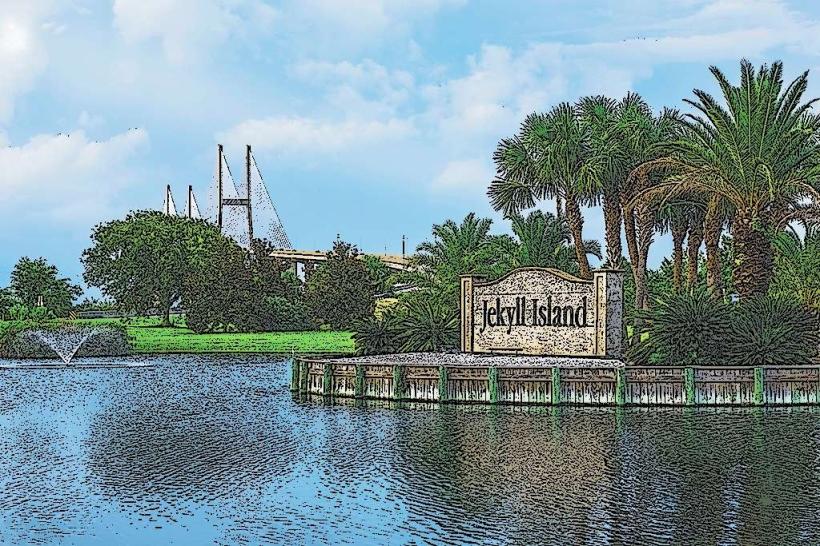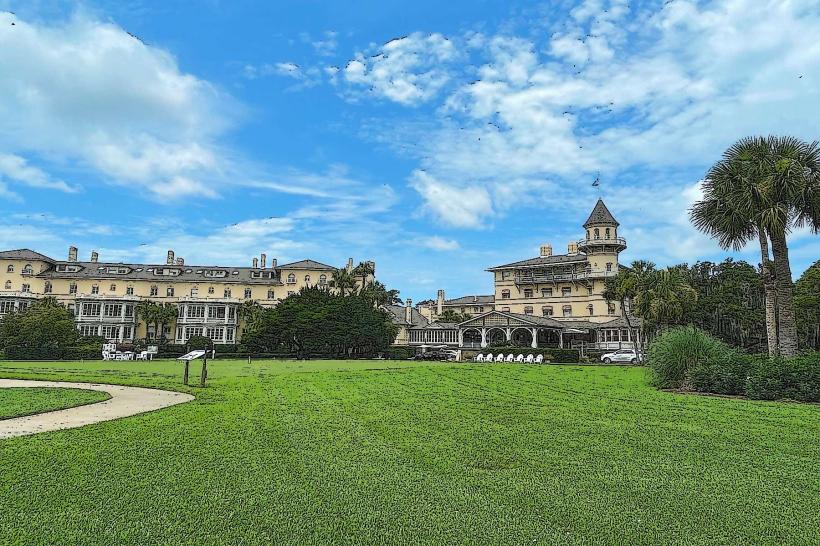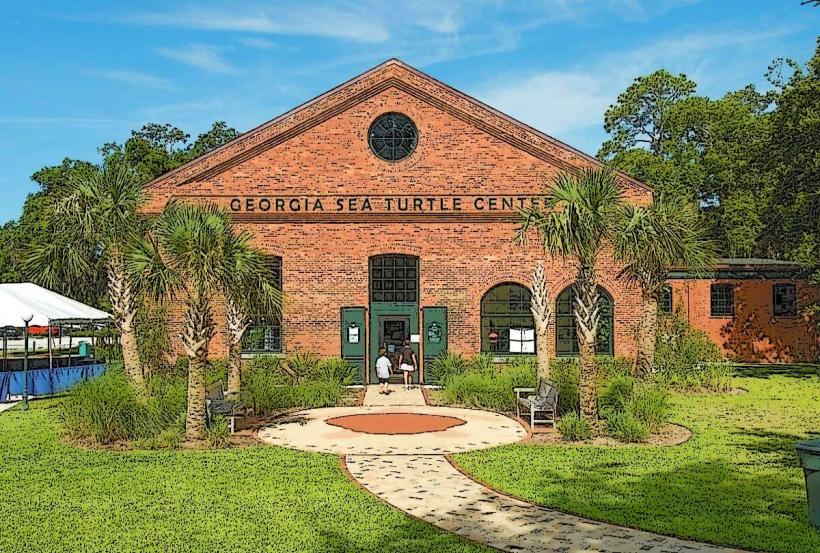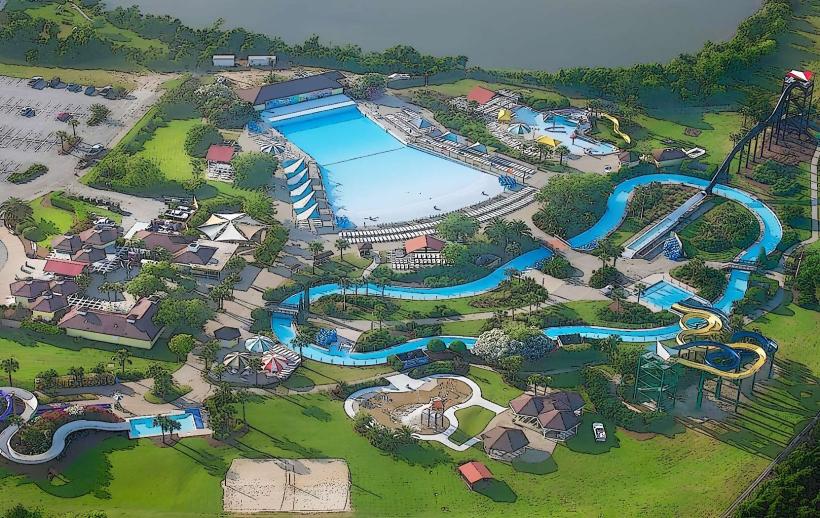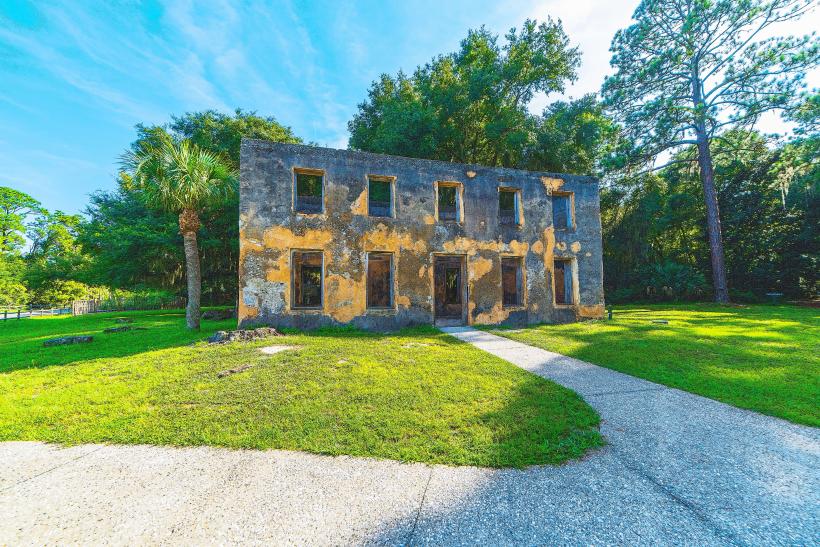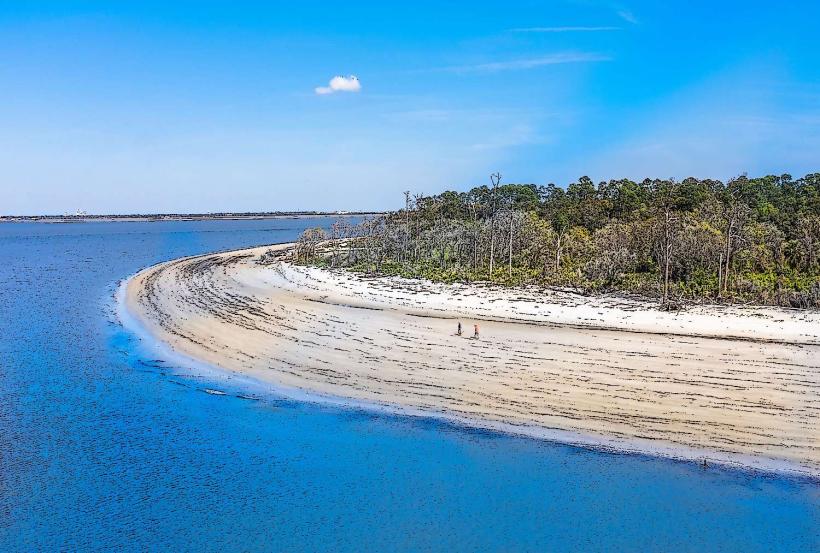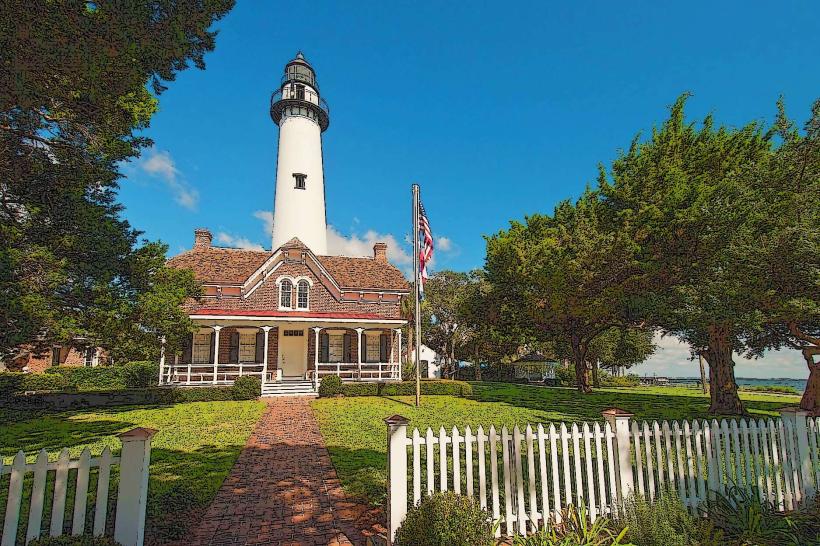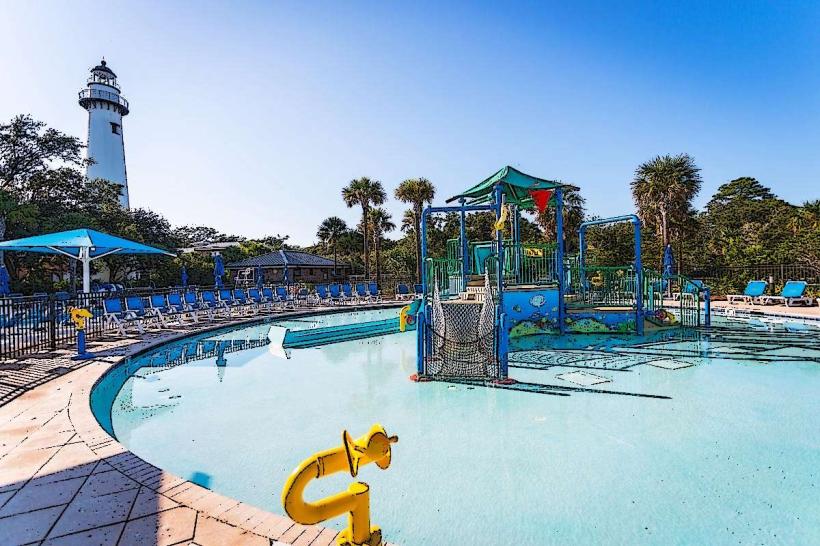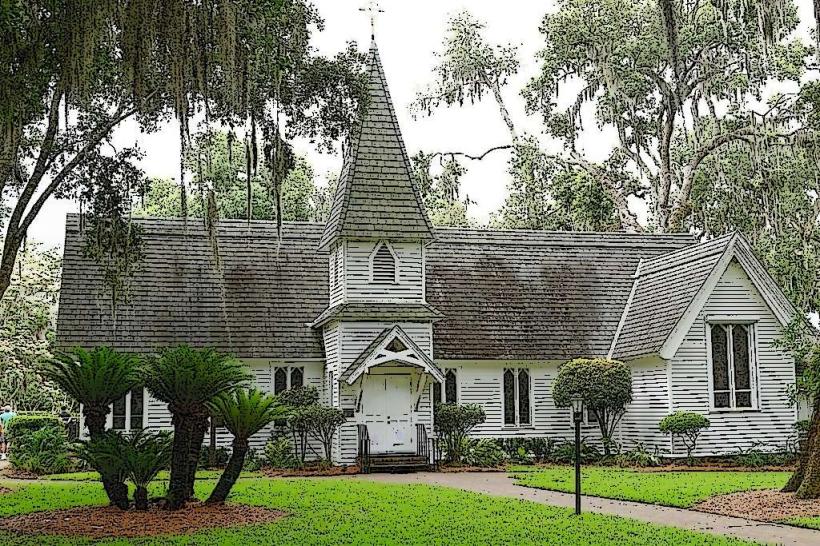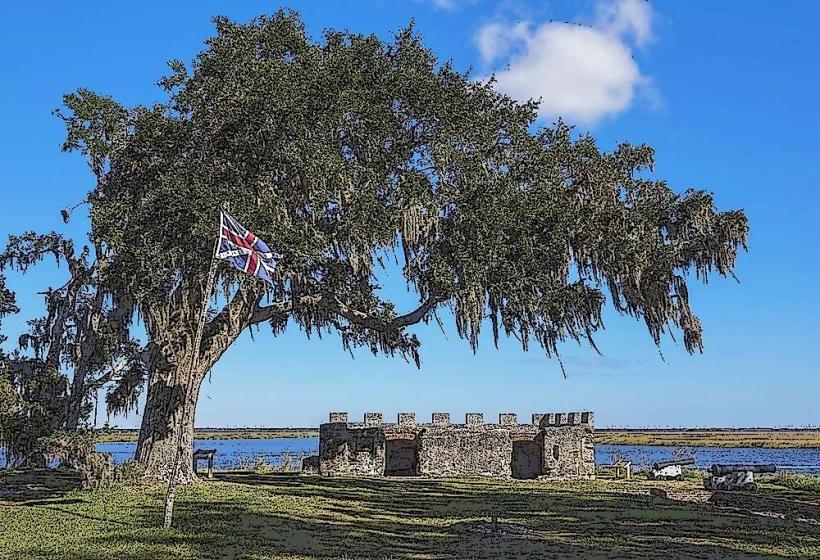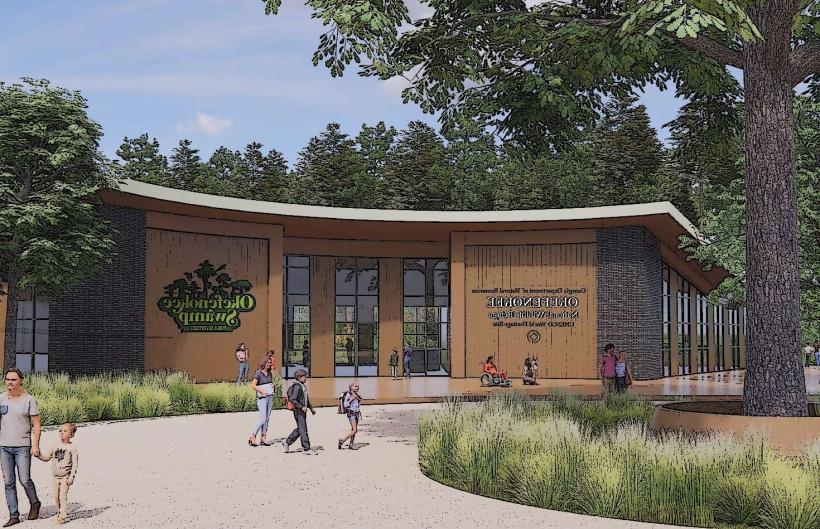Information
City: BrunswickCountry: USA Georgia
Continent: North America
Brunswick, USA Georgia, North America
Brunswick serves as the county seat of Glynn County and is a major deep-water port on the Atlantic coast. It is situated on a peninsula surrounded by the East River, the Turtle River, and the Brunswick River, approximately 125 km south of Savannah and 110 km north of Jacksonville, Florida.
Historical Timeline
Brunswick was founded in 1771 and named after the ancestral home of King George III. Primary governance eras include its role as a key 19th-century timber and naval stores port and its 20th-century status as a major shipbuilding center during World War II, where over 85 "Liberty Ships" were constructed. The city’s urban form was significantly defined by the 1771 "Brunswick Plan," which utilized a grid system with central public squares, similar to the Oglethorpe Plan in Savannah.
Demographics & Population
The population within city limits is approximately 15,000, while the Glynn County metropolitan area exceeds 85,000. The demographics are Black or African American (55%), White (38%), and Hispanic or Latino (5%). The median age is 34.8 years.
Urban Layout & Key Districts
The city is organized on a grid system focused on the waterfront. Old Town is the historic district containing 19th-century Victorian architecture and the city's original squares. The Waterfront/Port Area is the industrial heart, housing the Port of Brunswick-one of the busiest Roll-on/Roll-off (Ro/Ro) ports in the U.S. for automobiles. North Brunswick serves as the primary commercial corridor for shopping and national retail chains.
Top City Landmarks
Historic Ritz Theatre
Mary Ross Waterfront Park
Old Town Brunswick Historic District
Lovers’ Oak (A tree estimated to be over 900 years old)
Hofwyl-Broadfield Plantation (State Historic Site)
Transportation Network
Movement is serviced by Glynn County Transit. The city is a major node on I-95 and US-17. Brunswick Golden Isles Airport (BQK) provides daily commercial flights to Atlanta. The city is connected to the barrier islands via the Sidney Lanier Bridge, a massive cable-stayed structure. Ride-sharing via Uber and Lyft is active. Traffic density is moderate, though heavy industrial truck traffic is common near the port.
Safety & "Red Zones"
The general safety level is moderate. Caution is advised at night in specific areas of the southern residential blocks and neighborhoods bordering the Norwich Street corridor, which experience higher rates of property crime. Common scams are rare, usually involving unauthorized solicitors near the marina or transit stops.
Digital & Financial Infrastructure
Internet speeds average 200 Mbps with fiber-optic availability via Comcast and AT&T. Main mobile carriers are Verizon, AT&T, and T-Mobile. Card acceptance is universal. ATMs are concentrated in the historic core and near the Glynn Isles shopping centers.
Climate & Air Quality
Temperatures range from 6°C to 17°C in winter and 23°C to 33°C in summer. Air quality is generally high, though industrial odors from local pulp and paper mills can occasionally be detected. Specific weather risks include high humidity and seasonal hurricane threats.
Culture & Social Norms
The standard tipping percentage is 18–20%. A handshake is the standard greeting. Dress codes are highly casual and maritime-influenced. Smoking is prohibited in all public indoor spaces. The city is famously the origin of "Brunswick Stew," a traditional tomato-based vegetable and meat dish.
Accommodation Zones
I-95 Exit 38 / Golden Isles Pkwy: Recommended for national hotel chains, dining, and proximity to the airport.
Old Town: Recommended for boutique bed-and-breakfasts and walking access to the historic theater and waterfront.
Local Cost Index
1 Espresso: $4.25 (USD)
1 Standard Lunch: $15.00 (USD)
1 Sidewalk Parking (per hour): $1.00 (USD)
Nearby Day Trips
St. Simons Island (15 km)
Sea Island (18 km)
Jekyll Island (15 km)
Okefenokee Swamp Park (100 km)
Facts & Legends
Brunswick is the "Shrimp Capital of the World," home to a significant commercial fishing fleet that pioneered the modern shrimp industry. Historically, the city was one of the few places in the South where German U-boats were spotted offshore during WWII. A local legend involves the "Lovers' Oak," where Native American couples reportedly met for centuries, with locals claiming that vows made under its branches are unbreakable.

